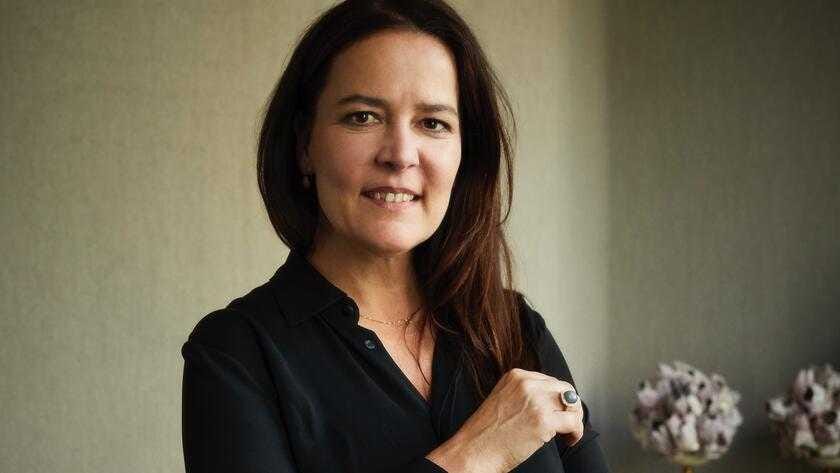Dear Insider,
Wouldn’t you like to have a crystal ball? Wouldn’t we all…?
As 2020 begins, the biggest questions regarding the future of the world and the world of business in Switzerland remain open.
Will a nation of individualistic-minded citizens cooperate (one more time) and allow a covid-19 vaccine to be distributed on a mass scale?
Will leftover effects of Great Britain’s exit from the European Union have positive (or negative) effects on Switzerland’s relations with its neighbors?
How will small businesses (and big ones too) continue to adapt to a world of digital business?
Answering these and other questions will not prove easy. But some answers may be found by examining the fundamental workings of Swiss society and Swiss business. (The proverbial watch works that make Switzerland ‘tick’…)
Only a few days ago, British officials announced that they would take the first significant steps away from EU policy when it comes to financial services and begin trading Swiss shares again (after service was suspended by the European Commission as retaliation for Swiss hesitation in signing a comprehensive bi-lateral treaty.)
SIX, the Swiss stock exchange, will likely follow suit and reciprocate with the trading of British companies on its own venue. Once again - Swiss pragmatism comes into play. By holding out against ‘big brother’ pressure from Brussels, the Swiss have been able to align themselves with a valuable free trading partner.
Pragmatism may be harder to enact on a more local level, where inter-cantonal squabbles and political rivalries still create problems. The Swiss People’s Party (SVP) came out with sharp criticism of the Federal Council’s covid strategy this week - and suggested replacing Health Minister Alain Berset. Such a step would be dramatic - and unlikely to succeed. But political points are also to be had by such a ‘pot-shot.’ And most politicians are happy to win easy points…
Meanwhile, the Federal Council’s Chief Economist sees a much rosier picture. Eric Scheiddiger predicts an economic boom in the coming months - despite the current dire situation for some small and medium businesses, and unemployment that has jumped by close to 50 000 in the past 12 months.
His crystal ball must be cleaner and clearer than most…
The Briefing
Burning news from around Switzerland - bit by bit…
Syndication in decline
The internet has long wrecked havoc with the news and media business. Since the onset of covid-19, revenue from advertising, the staple source of income for media brands has steadily declined. Now they are taking things into their own hands. The victims? News wire services like Keystone SDA, one of Switzerland’s oldest. The kicker, however, is that major outlets such as Neue Zücher Zeitung - which announced that it would cease taking articles off of the Keystone wire service - do not intend to simply give up. Their solution is to develop their own ‘search and surface’ service for top news in-house.
What it means: Those companies which used to specialize in particular services, in this case news amalgamation, now face stiff competition thanks to the low marginal cost of using an own tech service. Major news brands, such as NZZ (following in the footsteps of the Financial Times and others) now realize that with some effort and investment, they can take control of their sources - all by themselves.
Vaccine race - or not?
Israel has (so far) won the race. The small nation, surrounded by larger and seemingly more powerful countries, has managed to vaccinate a significant portion of its population in a very short amount of time. Switzerland - which, on the surface, shares some characteristics in common with the Jewish state - has not followed suit. With a rate of 0.08 per 100 persons, Switzerland lags far behind Israel in the race to protect its population from the pandemic (as of 08 January). With approval for the Moderna vaccine - in addition to that of BioNTech - coming soon, that could change. But approvals are not the only challenge. Distribution and government coordination also play a part. In a strongly federalized state such as Switzerland, the process takes considerably longer.
What it means: With only 8 million residents, Switzerland would seem to have a relatively short path to rolling out a strong vaccine plan. Internal disagreements and a population that can be skeptical of modern medicine makes it more difficult. Israel, meanwhile, benefits from a strongly centralized state structure. In this case, that is an advantage.
Burying Berset
No man (or woman) has had a harder job than Health Minister Alain Berset. His has been non-stop and his decisions, and those of his team, questioned at every turn. After the onset of the second corona wave, his (mis)steps come into even greater focus - and incite continued criticism. The socialist Federal Council member now faces calls for his resignation or replacement. His enemies in the right-wing SVP, however, have little to offer in replacement. Meanwhile, unemployment has risen by more than 3%.
What it means: Calls for Berset’s head make little sense. While a more coordinated and consequential plan for dealing with the corona crisis could always be desired, the balance of power between the federal and cantonal governments always makes it difficult in times of national need. Right-wing pot shots are little more than political opportunism and attempts to maximize public discontent with the drawn-out health crisis.
Feeling smarter (already)?
Let others know about The Swiss Insider…they’ll thank you. 😀
By the Numbers
All the numbers that matter…
CHF 21 billion
While Swiss National Bank chief Thomas Jordan continues to attract particular attention for his singular role in the Swiss economy, his institution has recorded a significant win - with over CHF 20 million in revenue for the year 2020.
98%
Corona has not been kind to the gastronomy industry. The second wave of infections led to greater restrictions on restaurants, cafés and bars - with strong negative effects. Now the gastro industry association Gastrosuisse has published an internal survey of its members, which indicates that at full 98% of its members require immediate financial help in order to survive.
CHF 850 million
There are fees - and then there are fees. Swiss banks, with their array of services, make much of their profit from the fees they charge clients, including - in recent years - negative interest rates for the very privilege of holding cash on their accounts. Now Credit Suisse has let it be known that it has set aside a pile of cash of its own in order to settle potential legal battles with international regulators - to the tune of CHF 850 million.
35%
Business rolls on for Coop - one of the largest retailers in Switzerland. While revenue was down slightly, its online business (like most) saw dramatic growth - a full 35% over the past 12 months.
The Profile - Nina Müller
An in-depth look at singular personalities from Switzerland. This week the focus is on Nina Müller, CEO of Jemoli, the high-end retailer owned by Swiss real estate giant Swiss Prime Site.
They say that retail is dead. One lady doesn’t believe it.
Jemoli CEO Nina Müller is a firm believer in the power of her mission - and her brand…despite the tough times that Swiss retailers currently face. The former Skvarovski executive took over the venerable Swiss department store brand a mere 10 months ago - and has faced the toughest challenge possible as her reward.
Interviewed by Swiss news service SRF in April 2020, shortly after the worldwide outbreak of the coronavirus, Müller acknowledged the value of value “omnichannel” marketing and the need to build out the company’s online offering. Up until now, it has not been impressive.
Perhaps it is to be expected from a traditional brand such as Jemoli.
Founded in 1849, the company is everything one might expect from a traditional Swiss retailer. Full of pride (and a little prejudice?) the department store has withstood the ups and downs of business cycles ever since its birth, though not without its low points, particularly in in the turbulent 1990s. Today it (still) numbers over 600 employees.
Other numbers are not so kind. Even before the pandemic, Jemoli had registered a CHF 4 million loss for 2019.
And yet…
Müller and her team, including those with the purse strings at Swiss Prime Site, the company’s owner, expect to see strong upward trends by 2023.
Provided corona is taken care of by then…









